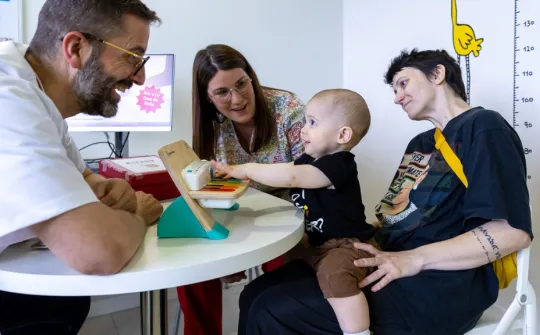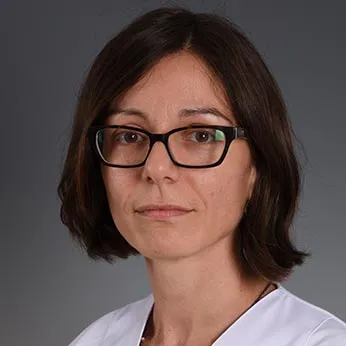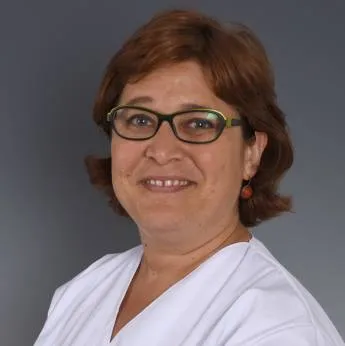
The Congenital Metabolic Diseases Unit collaborates with research networks to offer the best, most highly personalized treatment possible.
The Congenital Metabolic Disease Unit at SJD Barcelona Children's Hospital is a national and European leader in the treatment of metabolic diseases. We offer patient care based on experience, research and collaborative work with research networks for the purpose of developing personalised treatments.
Accreditations
- We have been granted the CSUR (Leading Centres, Services and Units) accreditation from the Ministry of Health, recognising us as a leading unit within the Neurology department.
- We are also part of MetabERN metabolic disease network (the European Reference Network for Rare Hereditary Metabolic Disorders), where we coordinate a working sub-group specifically dedicated to neurometabolic diseases.
What are congenital metabolic diseases?
These pathologies, also known as inborn errors of metabolism (IEMs), are diseases caused by a genetic disorder, specifically affecting a protein or enzyme which causes a block in the metabolic process. This block alters the normal functioning of some cells and organs and is manifested as a series of symptoms that are specific to each patient, among which are several types of neurological syndrome.
This group of diseases is extensive but can be organised into a system of classification that is currently undergoing significant transformation, thanks to greater knowledge of the basic mechanisms of each disease. The main groups by type of disorder are as follows:
- Small molecule IEMs: These affect the intermediary metabolism, which is the case for amino acid diseases (phenylketonuria or PKU and propionic acidemia). It also includes carbohydrate and neurotransmitter and neuromodulator defects.
- Inborn errors of energy metabolism: These are characterised by a deficiency in the production or use of energy. They include mitochondrial diseases, pyruvate defects and glycogenosis (muscular and hepatic), among others.
- Complex molecule IEMs: This group encompasses diseases that interfere in the synthesis of large molecules. They are manifested as permanent symptoms and are not related to nutrition. They include lysosomal diseases (mucopolysaccharidosis, oligosaccharidosis, sphingolipidosis, etc.), peroxisomal diseases (Zellweger syndrome, X-linked adrenoleukodystrophy) and congenital disorders of glycosylation, as well as other IEMs.
Why SJD Barcelona Children's Hospital?
We have extensive experience in the care of complex pathologies
We diagnose an average of 80 patients per year
We have extensive experience in the care of complex pathologies
We have more than 40 years' accumulated experience in the field of inborn errors of metabolism. During this time, our team of experts have perfected our detection, techniques and coordination in caring for families. Each year we diagnose around 80 new patients.
These diseases, also known as congenital metabolic diseases, are considered rare or minority diseases. Despite being uncommon diseases, inborn errors of metabolism (IEMs) constitute a significant group in which around 800 different diseases have been identified. In 90% of cases they are associated with a neurological disorder. Currently, in Catalonia, early detection is possible for around 20 IEMs through screening during the neonatal period based on standardised protocols.
In the Congenital Metabolic Disease Unit, we diagnose around 80 patients each year, a third of whom are infants. This figure has increased in recent years thanks to early diagnosis, which allows us to increasingly tailor the treatments to each patient and reduce future complications. Our Unit also manages external samples from other centres that request a second opinion in order to give a more accurate diagnosis.
SJD Barcelona Children's Hospital is one of the three European centres that conduct studies on amino acids and neurotransmitters.
Genetic confirmation enables us to provide accurate diagnoses
SJD Barcelona Children's Hospital is one of the three European centres that conduct studies on amino acids and neurotransmitters.
We have a molecular biology laboratory which genetically confirms each of the defects using specific gene panels for the illnesses.
In cases where there is an inborn error of metabolism, there exist biochemical or symptomatological markers that are common to several diseases. Therefore, it is necessary to go a step further to determine the genetic origin of each disease, and thanks to our technical and laboratory resources we can reach a highly-accurate diagnosis.
Specialists in different areas work in coordination to offer the best care to our patients.
The IEM Unit is made up of an extensive, multidisciplinary team
Specialists in different areas work in coordination to offer the best care to our patients
An average of 15 specialists in various fields of Neuropaediatrics, Gastroenterology, Nutrition, Psychology, Pharmacy and Biochemistry attend to the patients and their families.
Our professionals work in a coordinated manner and are involved at various stages of the diagnosis, treatment and follow-up of these particularly complex cases.
The dietetic treatment and the learning guidelines are essential in certain cases, therefore we not only treat affected children and adolescents, but we also provide their families with advice and guidance.
We share knowledge with various international centers and hospitals.
We take part in different research projects and collaborate with a number of European networks
We share knowledge with various international centers and hospitals
We are part of the European registry and network for Intoxication type Metabolic Diseases (EIMD) and have been leaders in Spain since 2011. We are also part of the homocystinurias network (E-HOD) and we co-lead the International Working Group on Neurotransmitter Related disorders (INTD).
We have recently joined the European network for congenital metabolic diseases (metabERN), in which we lead the subgroup for small molecule diseases that affect the cerebral metabolism (neurotransmitters, metals and cerebral glucose transporter deficiencies, among others). This enables us to share clinical management guidelines for these complex diseases, as well as create areas of focus based on clinical evidence and shared experience from several hospitals.
We create and share resources for training patients and caregivers.
Raising awareness and catering to families' social needs
We create and share resources for training patients and caregivers
The Metabolic Guide portal, launched by SJD Barcelona Children's Hospital, provides information and guidance for families. We work together with the Culinary Techniques Educational Programme and the special food bank for patients affected by an IEM to make it easier to follow the nutritional guidelines. We also have a programme to transition to adult hospitals for our patients.
Neurology team
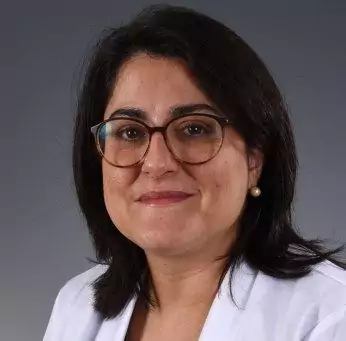
Gastroenterology and Nutrition Team
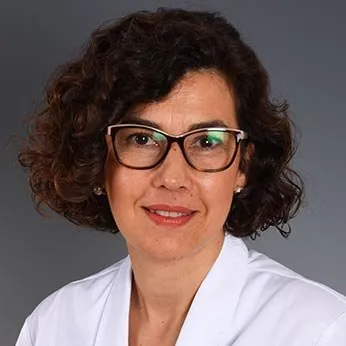
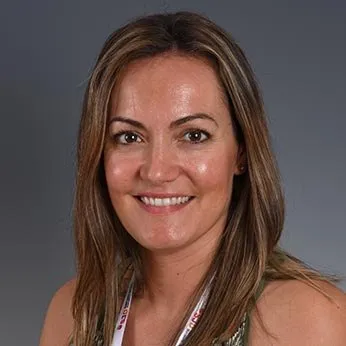

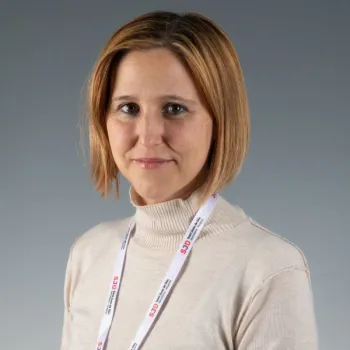

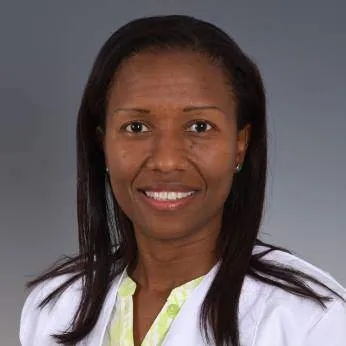
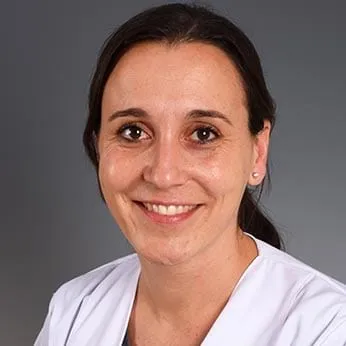
Biochemistry Team
Genetics Team
Research
As well as treating patients, the professionals working in the Congenital Metabolic Disease (CMD) Unit of SJD Barcelona Children's Hospital develop different areas of research focused on improving diagnostic tools and therapeutic techniques for inborn errors of metabolism and other rare genetic-based diseases. Our research is carried out at the Sant Joan de Déu Research Institute (IRSJD).
This activity has allowed our unit to join CIBERER, the Centre for Biomedical Network Research on Rare Diseases, which counts genetic and metabolic diseases among the rare disease research it conducts. The main lines of study are as follows:
- PKU and other disorders of intermediary metabolism.
- Mitochondrial energy metabolism and ataxias.
- Applied research in neuromuscular diseases.
- Synaptic and neural communication disorders in neurometabolic diseases (synaptic metabolism laboratory).
- Vitamin-sensitive movement disorders.
- Collaborative research in Lowe Syndrome.
- Development of clinical and radiological scales for the evolution of congenital disorders of protein glycosylation.
- Diagnosis of patients with IEM in the Atlas Mountains in Morocco thanks to the NGO Nousol.
The IEM unit also works in coordination with several European research networks, including:
- MetabERN (European Reference Network for Hereditary Metabolic Diseases).
- E-IMD (European Registry of Intoxication Metabolic Diseases).
- E-HOD (European Registry of homocystinurias).
- InNerMed (Inherited Neurometabolic Diseases).
- I-NTD (International Working Group of Neurotransmitter Related Disorders).
- INPDA (International Niemann-Pick Disease Alliance).
- Connecting The Growing Brain (Neurotransmitters and Synaptic Metabolism in Paediatric Neurology).
- RRD Foundation (Recordati Rare Diseases Foundation), involved in the scientific committee and the preparation of specific programmes
